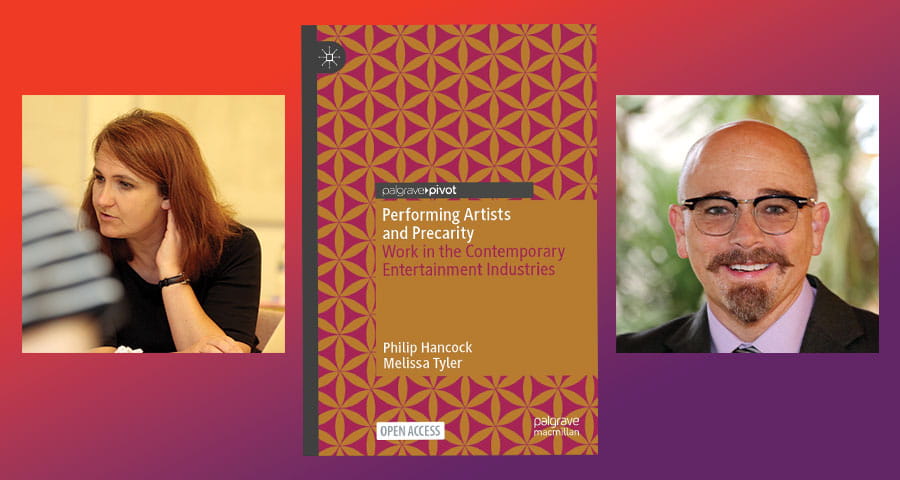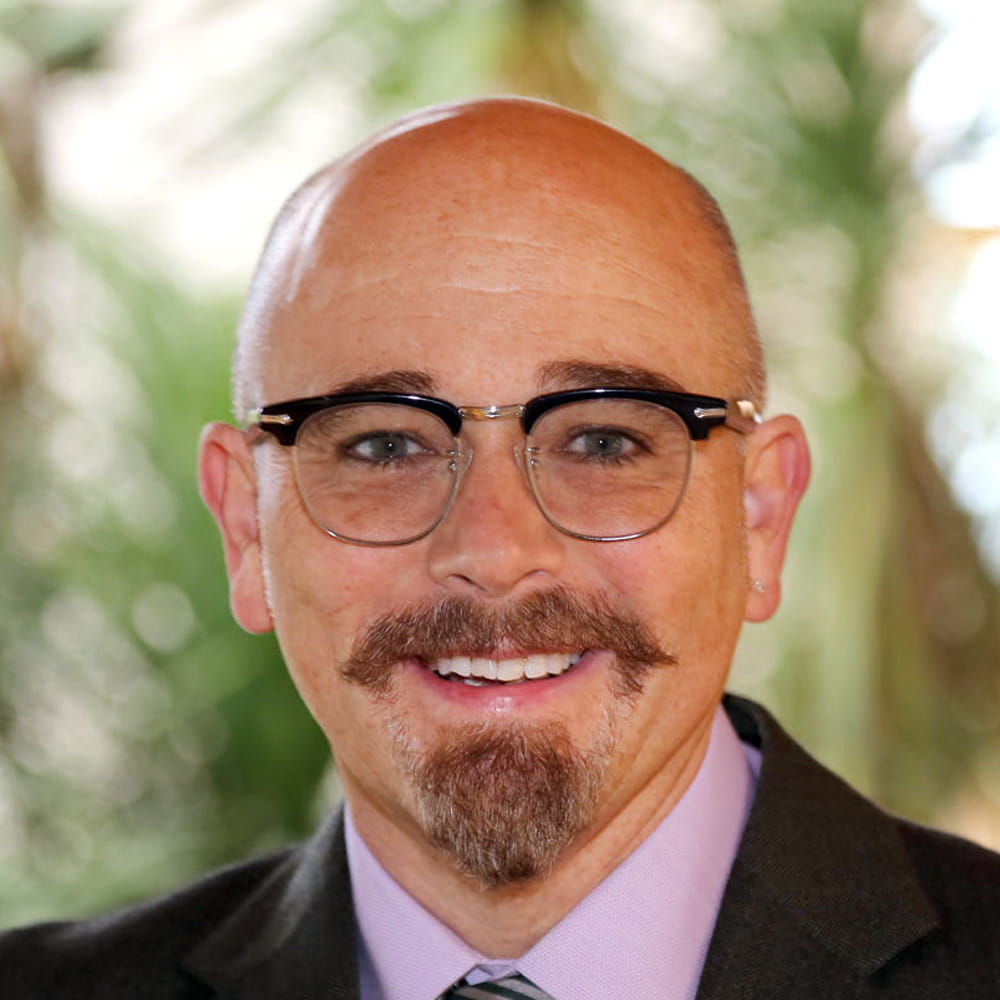Professor Melissa Tyler and Professor Philip Hancock, both of Essex Business School, are co-authors of the new Open Access monograph Performing Artists and Precarity: Work in the Contemporary Entertainment Industries (Palgrave).
They joined us to discuss their work and share why they chose to publish Open Access and the book is freely available to download now.

Congratulations on the publication of your book! Are you happy with the result?
Absolutely. While, in retrospect, there is always something one could have written or done slightly differently in any publication project, we feel that this book really captures the experiences of an economically and critically important workforce during a time of genuine crisis. As such, we hope it makes a significant contribution to our understanding of the cultural and creative sector in the UK in general and of the work of freelance and self-employed live performers, in particular.
You chose to make use of the University’s Open Access Fund. Why is Open Access important to you?
In addition to aiming for an academic contribution, we wanted to help drive real, positive change in addressing the challenges this workforce faces. Although the book's empirical focus is primarily on what occurred during the pandemic, our goal is to draw lessons for the future and to share them with the broadest audience possible. With that in mind, making the book Open Access and accessible to a wide readership was ideal, and the support from the University’s Open Access Fund allowed us to achieve this goal.
How did you find the Open Access process?
Once we fully understood the process and what it involved, it turned out to be incredibly straightforward. We were fortunate to have the resources and support from the University and our publishers, who were eager to collaborate and who shared our vision for pursuing this Open Access publication route.
What advice about Open Access, or publishing in general, would you offer to colleagues?
The first step would be to contact the University’s Open Access team to discuss your publication plans as early as possible, ideally right at the start, to determine whether Open Access would be a good fit for the project and to find out about the available support. It’s also essential to consider your target readership and weigh the potential benefits and drawbacks of your work reaching a broader, possibly non-specialist, audience.
Now, about the book itself, would you please give us an overview?
The book presents findings from a two-year study conducted during the later stages of the COVID-19 pandemic, funded by a small grant from the British Academy/Leverhulme Trust. The study explored the challenges and opportunities faced by primarily freelance and self-employed live performers and entertainers during the lockdowns and subsequent periods of social distancing. It covers various aspects of their experiences, such as financial struggles, and the significance of online performance and the challenges that came with it. Additionally, the study highlights how access to online performance opportunities was often unevenly distributed due to intersectional factors such as gender, social class, and race/ethnicity.
Beyond these concerns, the book also rethinks how the precarious nature of this work extends beyond financial uncertainty to include other forms of precarity. In particular, it introduces the concepts of "affective" and "recognitive" precarity. The former refers to how performers have to navigate changing audience expectations regarding presentation and sensory engagement. Recognitive precarity addresses the vulnerability performers feel and felt very acutely during the pandemic, particularly regarding the respect and recognition they rely on. This was especially difficult during the pandemic, given the limited opportunities to perform. While these issues are specific to the pandemic’s impact on online performance, they also shed light on broader challenges that are ongoing in this line of work.
When did you begin work on it? Does it cover conditions pre- and post-Covid?
The project began in autumn 2020 and concluded around August 2022, spanning the UK's second lockdown, periods of social distancing, and the gradual recovery from the pandemic. However, throughout the study, we encouraged participants to reflect not only on their experiences during this time but also on their work before the pandemic, helping to provide context and consider the future of the live entertainment industry in a post-pandemic world.
How did your find your research subjects and what range of performing arts do they represent?
Our approach was multi-faceted. In the early stages, we leveraged personal contacts within the industry to discuss our ideas and pilot the survey and interview questions. These contacts also connected us with other performers they knew, creating a snowball sampling effect. The link to our online survey was shared via social media and supported by organisations like Equity, the performing arts and entertainment trade union, as well as platforms such as The Stage magazine. The survey included a checkbox asking respondents if they were open to being interviewed, which provided the majority of our interviewees.
To ensure a degree of representativeness, interview candidates were purposively selected based on factors such as geographical location, demographic characteristics, and their particular practice or "discipline." As a result, we spoke to a wide range of performers, including actors, musicians, dancers, comedians, puppeteers, storytellers, and more, with many participants working across multiple disciplines.
With all sorts and sizes of venues closing or struggling, what does the future look like for your artists?
The current landscape is quite complex. As you mentioned, many performance venues are struggling or have closed—a problem that existed before the pandemic but was certainly exacerbated by it. Additionally, many performers and other industry workers have left the sector. While there is demand for live entertainment again, and work is available, many freelancers and self-employed workers across the industry are still facing issues like low pay, unmanageable workloads, and other challenges discussed in the book. Furthermore, although the effects of the pandemic are diminishing, Brexit and the ongoing cost-of-living crisis continue to have a negative impact on many.
However, with organisations including Freelancers Make Theatre Work, who we are working with on their Big Freelancer Survey 2020-2025, advocating for them and bodies such as Arts Council England recently releasing a report on the conditions faced by freelancers in the sector, there are signs that improvements may be on the horizon.
How do you plan to use Open Access to reach your ideal audience?
Primarily by widely publicising the book, with the added advantage of being able to provide a link for potential readers to download it free of charge—a real game changer. This effort will be supported by the strong connections we've built with many of the organisations we’ve worked with, who we hope will also help to distribute the link to various stakeholders and interested audiences.
What’s next for you both?
Regarding this specific area of research, we are continuing our collaboration with Freelancers Make Theatre Work. We are also planning to work with the Theatre Artists Fund to help evaluate a pilot project they have launched to support technical and creative freelancers in the industry. Furthermore, we are eager to explore how our findings and the concepts we've developed remain relevant for the post-pandemic self-employed and freelance creative workforce.
Performing Artists and Precarity: Work in the Contemporary Entertainment Industries is freely available to download now.
The Open Access Fund
The University of Essex's institutional Open Access Fund enables Essex authors to publish their research open access and to share their findings without barriers. You can explore your Open Access options with our dedicated forms: for longform works such as books and chapters, and for articles.









